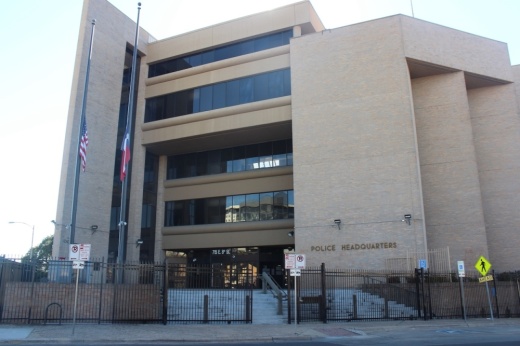City Council signed off on the broad sexual assault case review, eventually handed to the Police Executive Research Forum, or PERF, in early 2019 following scrutiny of APD’s mishandling of rape investigations and after the department developed a backlog of hundreds such cases. In addition to diving into the case details, the PERF was also tasked with providing relevant recommendations for city leaders to consider.
"We will be judged not by this resolution but by the actions that we take, either in the interim or down the line," Council Member Alison Alter said ahead of the January 2019 vote.
The review, also supported by the Women’s Law Project and the Wellesley Centers for Women, was expanded last summer to look into APD's work on hundreds of sexual assault cases between 2012 and 2020. The PERF’s final report is expected to be released this month after a delay this spring.
Ahead of its publication, the PERF compiled proposals for the city and APD to consider as council moves toward its mid-August approval of Austin’s fiscal year 2022-23 budget. While the organization’s recommendations were not forwarded with the full context of its comprehensive report, the items outline some of the shortfalls the PERF identified at APD and its sex crimes unit alongside potential fixes for the city to take on.
One of those recommendations stemmed from the PERF's discovery of a "lack of crime analysis" in APD's Sex Crimes Unit, a unit that also failed to recognize how such analysis could improve their work, reviewers said. To address that deficiency, the organization recommended bringing on a new crime analyst with an estimated $62,400 salary, plus benefits.
"SCU does not have the necessary resources to understand the nature of cases, identify problem places or people, link cases, identify trends, prevent future cases of sexual assault, or improve its work through review and accountability," The PERF's preliminary report states. "Without sufficient crime analysis capacity, each investigator or team works in a silo, and detectives could be working a case related to one being handled by another SCU investigator."
PERF officials also said APD detectives routinely did not test evidence—such as condoms, underwear and bedsheets—they gathered during rape investigations aside from sexual assault kits, in part due to forensic costs. Reviewers noted that practice may have had an effect on whether suspects in many cases end up being identified.
"A case should not be declined for prosecution based on a 'lack of evidence' when there is evidence available that has not been tested or analyzed, and could prove the identity of the suspect or corroborate the allegation," the review states.
Other proposals include enhanced sexual assault investigation training for new cadets, rank-and-file officers, and SCU detectives focused on "victim-centered, trauma-informed" techniques. According to Chief Joseph Chacon, such strategies have recently been prioritized at the department to some extent since his promotion last fall.
The PERF also forwarded proposals related to the SCU's vehicles, technology and work with survivors. Another recommendation called for local governments and stakeholders to consider establishing a private 24/7 care facility for sexual assault victims in the coming years.
Additionally, PERF officials said Austin should continue with reviews similar to the one analysts were engaged with over the past three years—but carried out by local advocacy groups rather than the national nonprofit. PERF officials said such annual reviews could focus on the thoroughness of investigations, possible bias and whether APD cases reached "appropriate outcomes" in a given year. Researchers estimated that work could cost $75,000-$100,000 annually.
City officials will spend the next week solidifying Austin's next budget, potentially with some of the concepts forwarded by the PERF. In a statement, Alter said she plans to ask her colleagues to adjust the the city spending plan to account for some of the proposed improvements.
“I've long championed reforming our sexual assault response system, and I'm proud to have authored a package of amendments that build on the work of our local advocates and survivors, and the preliminary [PERF] report recommendations," Alter said. "This funding will help us to strengthen Austin’s sexual assault response system and create more pathways towards justice and healing for survivors.”
According to city staff, the proposed budget already includes items, such as a $122,000 data manager position related to sexual assault cases and a $132,000 position for a coordinator with the Austin/Travis County Sexual Assault Response and Resource Team who would survey survivors about their experiences with the local justice system.
More than $200,000 in relevant police training, a $60,000 public awareness campaign and $238,000 for continuing evaluation of APD are also funded in the draft budget.





